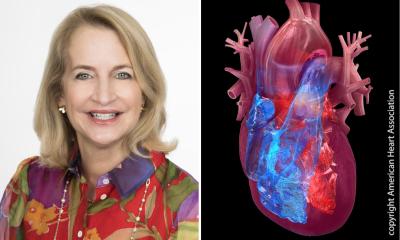The prevention of lifestyle diseases has finally reached the top table of the United Nations
The European Society of Cardiology, through the European Chronic Disease Alliance (ECDA), has urged European heads of state "to show leadership" and long-term commitment to the prevention of chronic non-communicable diseases at today's "high level meeting" of the UN General Assembly in New York.

This will be the first time ever that the UN has sought "action-orientated" commitments from governments and international organisations on the prevention and control of lifestyle-related diseases, and only the second time - following its declaration on HIV/AIDS in 2001 - that a health issue has attracted such high governmental attention. Measures to prevent non-communicable diseases, says the UN, have the potential to save "millions of lives" and "untold suffering".
The draft declaration on which the General Assembly will begin discussion today was made public on 9th September. It will make concrete commitments on access to effective medicines, the control of tobacco, the elimination of industrially produced trans-fats in foods, and the implementation of measures to reduce consumption of dietary salt, sugars and saturated fats and increase levels of physical activity in all populations.
Agreement on all of these measures, says ESC spokesman Simon Capewell, Professor of Clinical Epidemiology at the University of Liverpool, UK, would be a major step forward in the prevention of cardiovascular and other non-communicable diseases. "Indeed," he notes, "the fact that they are even being discussed by the UN and endorsed by heads of state will give the whole question of prevention the importance it deserves. So far, although there has been great progress in some countries and in some areas of prevention, the global burden imposed by non-communicable diseases is still overwhelming. This is unacceptable and totally unnecessary."
Even within Europe, where anti-smoking and heart-healthy lifestyle campaigns have been introduced with some degree of success, the present facts underline the challenge:
- Non-communicable diseases, such as heart disease, stroke, diabetes, common cancers and chronic diseases of the liver, kidney and respiratory system together cause 86% of all deaths in Europe
- Up to 40% of European adults suffer some long-standing health problem related to chronic non-communicable diseases
- Up to 80% of all healthcare expenditure in Europe is allocated to chronic diseases; cardiovascular diseases alone are estimated to cost the EU economy over 192 billion euro every year3.
Moreover, only 3% of all current healthcare spending is directed at prevention. The rest is consumed by treatment. While all these non-communicable diseases are "treatable", rarely are they curable - although the majority of them are indisputably preventable. "Prevention," says Capewell, "is much more effective and more cost efficient than treatment."
Indeed, as recent research performed by Capewell and colleagues indicates, legislation or other measures to reduce salt or trans-fat consumption by just a small percentage would yield substantial personal health benefits and reductions in healthcare costs4.
Thus, the ESC welcomes the acknowledgement of trans-fats in the draft UN declaration and the specific recognition that “price and tax measures are an effective and important means of reducing tobacco consumption”. In the past anti-tobacco campaigners have found tobacco interests lobbying ferociously against any fiscal measures on tobacco. This has frustrated national policies designed to protect citizens.
The ESC and associate organisations therefore welcomes the draft declaration's:
- Agreement for countries to establish their own chronic disease policies by 2013
- Recognition of non-communicable diseases (and their prevention) in all development and planning agendas
- Commitment to accelerate implementation of the WHO Framework Convention on Tobacco Control (FCTC), which details price and tax (and non-price) measures to reduce the demand for tobacco.
There is also provision in the declaration for a follow-up meeting in 2014 to assess the impact of the measures agreed in New York. However, the ESC along with other organisations is disappointed that no targets have been set for this assessment. For example, says Capewell, the deletion of a 5 mg target on salt intake per person per day which was in earlier drafts has now been removed. In its place are the promotion and initiation of “appropriate" cost-effective interventions to reduce salt, sugar and saturated fat. "There are many references to 'as appropriate' placed against health measures," he says. "This lets governments off the hook."
The ESC and ECDA were also hoping that the draft would set an overall target for global mortality attributed to non-communicable disease based on the WHO recommendation to cut preventable deaths by 25% by 2025. But no defining target has been included in the present draft, so the impact will not be easily measured - and the impetus for countries to try harder less pronounced.
Conclusion
However, despite the disappointing nature of some items of the draft, the ESC welcomes the strong overall message of the Declaration and the new focus on chronic diseases at the highest governmental level. "Two years ago," says Capewell, "such a focus would have been unthinkable. Now, the whole summit process has moved preventable diseases right up to the top table. There is now a clear recognition of the scale of the problem and of the need to take action."
In Europe ESC President Professor Michel Komajda along with other leaders of the ECDA has already written to José Manuel Barroso, President of the European Commission, to advise him of the importance of today's meeting. Since then, the Commission has pledged to make clear its commitments to the prevention and control of non-communicable diseases with a new resolution.
19.09.2011





